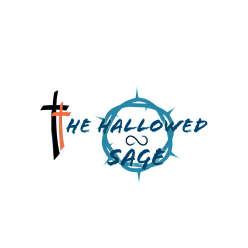Having seen the difference between alcohol drinking and alcohol abuse in our previous blog that’s not enough for a Christian to answer this question. One has to know fully the various effects, both positive and negative, associated with this subject, alcohol.
Thus, with this knowledge, one is able to make sound and proper judgment on the question at hand, as it was even instructed in Deuteronomy 16:19: “You shall not misinterpret or misapply judgment; you shall not be partial…” Hence, both sides of the coin are to be looked at!
Let’s start with the negative attributes associated with wine:
- Intoxication or drunkenness:

This involves a state of being under the influence of a substance, in this case, wine or strong drink, that alters one’s mental and physical abilities.
This can lead to impaired judgment, coordination, and behavior. As laid out in 1 Samuel 1:14, Eli said to her, “How long will you be intoxicated? Put wine away from you.”
To closely study this issue and paint a clear picture, we have to borrow a leaf from the patriarch Noah and his son Ham. Noah’s drunkenness led to Ham seeing his father’s nakedness, which resulted in a curse. However, if Noah had not drunk himself silly, this wouldn’t have happened. Moreover, if Ham had been a respectful son, he wouldn’t have been cursed. So, both sides of the coin have to be observed.”
Furthermore:
We see the effects of alcohol intoxication in the story of Lot and his deceitful daughters, who got him drunk and tricked him into committing incest, as seen in Genesis 19:34. The daughters exploited their father’s weakness for wine, which ultimately led to the birth of the sinful nations of Moab and Ammon, who continued to fight against Israel, God’s chosen nation.
2. Alcohol intoxication leads to impaired judgment and decision-making, as it alters the drinker’s consciousness:
This is why Proverbs 20:1 states, “Wine is a mocker, strong drink a riotous brawler; and whoever errs or reels because of it is not wise.” (Also see Prov. 23:29-30, Isa. 28:7, and Hos. 4:11.)
For this same reason, contracts made with someone who is intoxicated or under the influence of alcohol may not be valid, as their decision-making is impaired. This clearly shows that when one gets drunk, their thinking is altered.
Deluded Reality! Alcohol is a mysterious substance because it alters not only your decisions or judgment but also your reality. It makes you see what’s in your mind at that state rather than reality. If one is in a happy state, alcohol will stimulate that happiness regardless of the actual circumstances, and the person will be in a happy mood or state.
A good example is seen in [Proverbs 23:35:] “You will say, ‘They struck me, but I was not hurt! They beat me [as with a hammer], but I did not feel it! When shall I awake? I will crave and seek more wine again [and escape reality].’ The person referred to in the scripture was beaten but didn’t feel the pain. They escaped reality by drinking wine, but that doesn’t mean the pain has gone away. They are simply pushing it to the next day.
That’s why Paul writes to the Romans as a precaution in (Romans 14:21): “The right thing is to eat no meat or drink no wine [at all], or [do anything else] if it makes your brother stumble or hurts his conscience or offends or weakens him.”
3. Likelihood of poverty:

This is possible if one becomes terribly addicted to wine and forsakes work, giving up on life goals. That’s why the wise man in Proverbs 21:17 said, “He who loves pleasure will be a poor man; he who loves wine and oil will not be rich.”
The positive attributes of alcohol or wine:
- Mood booster, joy giver, and happiness.

It’s no coincidence that wine or alcohol is often present at most feasts, parties, and celebrations. This is due to its ability to boost the mood and generate a joyful atmosphere.
A notable example is Jesus’ first miracle, where he turned water into wine (John 2:4-10). In John 2:11, it states: “This, the first of His signs (miracles, wonderworks), Jesus performed in Cana of Galilee, and manifested His glory [by it He displayed His greatness and His power openly], and His disciples believed in Him [adhered to, trusted in, and relied on Him].”
This raises the question: Why would Jesus’ first miracle be turning water into wine? The answer lies in the context: he was at a marriage feast, where the mood was celebratory and joyful. By turning water into wine, Jesus continued the celebration and demonstrated his power and abundance.
2. Enhancement of Socialization:

Wine can facilitate social bonding and togetherness. When fine wine is served, people often come together, relax, and enjoy each other’s company. This can lead to unity and a sense of community, as seen in Esther 1:7, where King Xerxes’ lavish banquet featured abundant royal wine, promoting a spirit of hospitality and generosity.
3. Reward for Accomplishment:

Alcohol can be a way to celebrate achievements or spiritual milestones. In Ecclesiastes 9:7, it is written, “Go your way, eat your bread with joy, and drink your wine with a cheerful heart…for God has already accepted your works.” This emphasizes the importance of moderation and gratitude. Additionally, Numbers 6:20 describes how a Nazirite can enjoy wine after completing their consecration period.
4. Medicinal Purpose:

Alcohol has been used as a medication for certain conditions, as mentioned in 1 Timothy 5:23. However, it is crucial to emphasize the importance of moderation, as excessive consumption can lead to abuse or misuse.
5. Temporary Stress/Burden Relief:

Many drinkers claim that alcohol helps them cope with stress and problems. The Bible acknowledges this temporary aspect of alcohol in Proverbs 31:6-7, which states that alcohol can provide relief for those who are struggling so as to forget there burdens . However, this relief is short-lived, as the intoxicating effects of alcohol only temporarily alter one’s emotions and feelings.
Conclusion:
Everything has its purpose and use. To use alcohol responsibly, one must strike a balance and not let it control them.
This is emphasized in (Ecclesiastes 2:3) where the writer seeks to find a balance between enjoying wine and maintaining wisdom and guidance. By understanding the purpose and limitations of alcohol, we can use it in its right context and avoid exceeding the pivot point.
The Hallowed Sage
Author
Engage and Share:
Follow Us:



